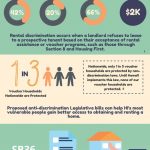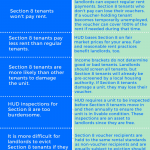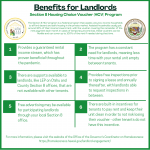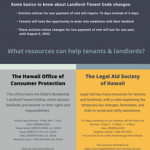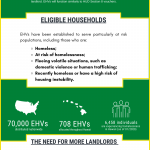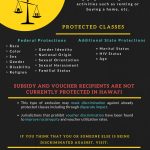Landlord Engagement
The above videos include interviews with landlords, service providers, and prospective tenants in Hawaii, as well as community presentations, which describe the important role that landlords can play in working to end homelessness in Hawaii.
Why is Landlord Engagement an important community issue?
- Through the American Rescue Plan Act (ARPA), the U.S. Department of Housing and Urban Development has released 70,000 Emergency Housing Vouchers (EHVs) nationwide, including over-700 throughout Hawaii.
- The number of EHVs anticipated for Hawaii include nearly-500 on the island of Oahu, administered by the City & County of Honolulu and the Hawaii Public Housing Authority.
- EHVs will be targeted to individuals and families experiencing homelessness, as well as recently homeless individuals and families or those at imminent risk of homelessness.
- In addition to the EHVs, there are numerous other housing subsidy programs that are currently available, or expected to soon be available, in Hawaii – including Rapid Rehousing, Section 8 Housing Choice Vouchers, vouchers through the Rent to Work program, and rental subsidies for households assisted through the Temporary Assistance for Needy Families (TANF) and Temporary Assistance for Other Needy Families (TAONF).
- Collectively, EHVs and other housing subsidy programs could make a major impact on reducing homelessness and housing instability statewide.
- The Statewide eviction moratorium ended in early August 2021, so there is a need to engage landlords to assist individuals and families who may be displaced and are in need of rehousing.
- Act 57 (2021) was passed by the Hawaii State Legislature to provide one year of certain protections for those continuing to struggle to keep up with rent as the state transitions out of the pandemic emergency, including a mandated option of mediation for situations of eviction for non-payment of rent. These protections will end in early August 2022.
- A shortage of landlords willing to accept available housing subsidies could be a large barrier that may result in millions of dollars in EHVs and other subsidies being unused or left on the table if we are unable to engage landlords in the critical work to end homelessness.
- In addition, without the assistance of landlords stepping forward, many local families may not be able to secure new housing – despite available government resources available for rehousing efforts.
What are examples of some common barriers facing potential renters wanting to access EHVs or other housing subsidy programs?
- A big challenge facing potential renters statewide is the wording in many rental listings that clearly state “No Section 8” or “No Vouchers.”
- While advertisements prohibiting Section 8 and other housing subsidies are common, this practice is currently not illegal.
- In addition, prohibitions against Section 8 and other housing subsidies often masks other forms of discrimination that are illegal, such as discrimination related to family composition, gender, sexual orientation, race, and other protected categories.
- These practices exclude prospective tenants with housing vouchers from applying and being screened based on their tenancy qualifications like any other prospective tenant.
- Act 310 (2022) will prohibit discrimination in certain circumstances based on participation in any Section 8 Housing Choice Voucher program or any Permanent Supportive Housing program. While the discrimination prohibition will not apply to all landlords or all rental assistance programs, this protection that goes into effect on May 1, 2023 will help house more of our most vulnerable households.
Is there support currently available to landlords that are willing to accept a housing subsidy?
- Yes. Homeless service providers that offer Housing First or Rapid Rehousing assistance provide case management and other supportive services, including damage guarantees, for landlords who participate in their program. On Oahu, Partners in Care’s Landlord Engagement Program provides 24-hour phone line support, as well as other incentives to landlords to relax the application of screening criteria to participating households, ensuring that complaints and concerns will be responded to and providing assistance if a client damages a unit.
- Other examples of support include a Landlord Incentive Program being offered by the County of Hawaii Office of Housing & Community Development. The program included a one-time incentive of up to $1,000 in gift cards for landlords looking to partner with rental property owners to provide housing.
What can the public do to support?
- Potential landlords can contact the Governor’s Coordinator on Homelessness at (808) 586-0193 or the Oahu Landlord Engagement Program at (808) 380-9354 ([email protected]).
- Potential renters and members of the public can educate themselves by contacting the Hawaii Fair Housing Enforcement Program at the Legal Aid Society of Hawaii if a questionable situation related to housing discrimination arises.
- Advocate for changes in Hawaii law to implement policies prohibiting discrimination against those receiving housing subsidies – also known as Source of Income Discrimination – Today, 16 states and over 90 local municipalities have already enacted Source of Income discrimination laws.
- Join your local Continua of Care – either Partners in Care on Oahu, Maui Homeless Alliance, Kauai Community Alliance, or Community Alliance Partners on Hawaii island – to support local efforts to end homelessness in your community:
- Partners in Care (PIC) – General meeting is on the 3rd Tuesday of each month from 12:00 p.m. – 1:30 p.m. To join, contact Sharon Baillie at [email protected].
- Maui Homeless Alliance (MHA) – Meets on the 3rd Wednesday of each month from 12:00 p.m. – 1:30 p.m. To join, contact Sherry Kupau at [email protected].
- Kauai Community Alliance (KCA) – Meets on the 2nd Wednesday of each month from 10:00 a.m. – 12:00 p.m. To join, contact Melody Lopez at [email protected].
- Community Alliance Partners (CAP) – Meets on the 4th Wednesday of each month from 9:00 a.m. – 10:30 a.m. To join, contact Toni Symons at [email protected].
With the State and federal eviction moratoriums having ended earlier this year, what resources are there that can be shared with landlords or tenants to help them prepare?
- The Hawaii Office of Consumer Protection has updated resources regarding the new temporary changes to the Landlord-Tenant Code online.
- Legal Aid Society of Hawaii has put together an eviction training for social service providers.
Please also view the resources and articles below for more information about the need to partner with landlords to end homelessness in Hawaii:
- Editorial: Protection those on rental assistance – Honolulu Star-Advertiser (February 27, 2022)
- The Long Road Home: Navigating the Rental Market as a Voucher Holder (December 2021)
- Commentary: Landlords needed -Help house our community (December 8, 2021)
- A Coalition to Care for the Homeless – MidWeek (December 1, 2021)
- State calling on landlords to help solve the homeless crisis – KITV (October 22, 2021)
- Encouraging landlords on Hawaii island to put aside Section-8 stereotypes – Ka Wai Ola (September 1, 2021)
- Facing eviction, tenants struggle to find landlords who accept housing vouchers – Hawaii News Now (July 21, 2021)
- Aid is ready, but there’s no inventory in Kauai’s rent crisis – Hawaii Public Radio (July 20, 2021)
- Talk Story with Rick Hamada – KHVH AM (July 15, 2021)
- Hilo Renters Fear They’ll Be Among the First to Go When Eviction Moratorium Ends – Honolulu Civil Beat (July 12, 2021)
- Presentation to Hawaii Cyber Lions Club (July 2, 2021)
- Laura E. Thielen: The director of Partners in Care on Oahu leads efforts to help the homeless get off the streets and into affordable homes (July 2, 2021)
- Search is on for landlords to house homeless on Oahu _ Honolulu Star-Advertiser (June 14, 2021)
- Oahu Rental Assistance Program for Homeless Searching for Landlords – Hawaii Public Radio (June 15, 2021)
- City hopes to efficiently distribute federal funds for homelessness by deadline _ Honolulu Star-Advertiser (June 16, 2021)
- Editorial_ United effort can curb homelessness _ Honolulu Star-Advertiser (June 17, 2021)
- Presentation to Elizabeth Kahanu Hawaiian Civic Club (May 24, 2021)
- Rental Discrimination in HI infographic 03-08-2021
- Getting a Section 8 Voucher is Hard. Finding a Landlord Willing to Accept it is Harder – Pew Charitable Trusts (August 31, 2018)
For more information, please view any of the information infographics below:
- Because a Landlord Stepped Forward . . .
- Let Us End Rental Discrimination in Hawaii
- Myth vs. Fact: Section 8 Housing Choice Vouchers (HCVs)
- Benefits for Landlords: Section 8 Housing Choice Voucher Program
- The eviction moratorium has been lifted. What now?
- What resources can help tenants and landlords?
- Accepting Housing Vouchers Can . . .
- How can Oahu’s Landlord Engagement program help Landlords?
- What are Emergency Housing Vouchers?
- Fair Housing Act: What is it?


